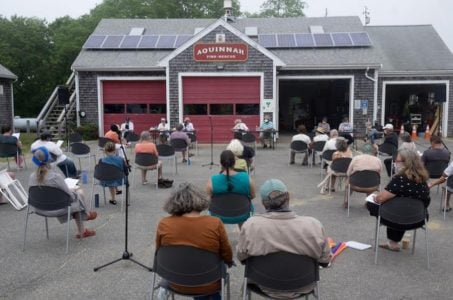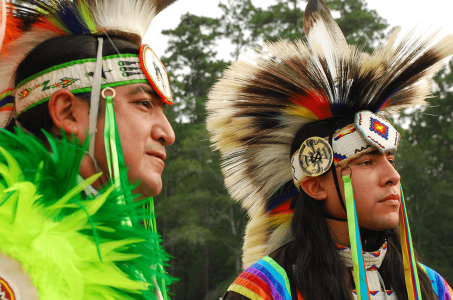Judge Dismisses Litigation on Spokane Airway Heights Casino Brought by Rival Washington State Tribe
Posted on: July 14, 2019, 09:07h.
Last updated on: July 14, 2019, 02:05h.
A lawsuit that sought to effectively close Spokane Tribe of Indians’ new Airway Heights casino was dismissed by a federal judge in Washington state on Friday.

The Spokane tribe has operated the off-reservation gaming venue since January 2018. To prevent its opening, the Kalispel tribe initially filed the suit in 2017.
That tribe operates a rival gaming venue located two miles away. Attorneys for the Kalispels had said the Spokane casino would hurt the Kalispel-run Northern Quest Casino and Resort.
Revenue from that casino pays for most government operations run by the Kalispels, KXLY reported. That includes such programs as social services.
In the suit, the Kalispels sought to eliminate federal approval for the Spokane venue. That would have forced the casino to close.
In last week’s ruling, Judge William Fremming Nielsen said the Bureau of Indian Affairs (BIA) “squarely addressed Kalispel’s concerns regarding lost profits,” according to The Spokesman-Review. “The department’s expert concluded that while the Kalispel may suffer in the short term, eventually the profits would rebound and both tribes would benefit.”
Spokane County Sued DOI, Too
Spokane County also sued the Department of the Interior for approving the Spokane venue. In Friday’s ruling, Nielsen disagreed with the county’s major arguments related to the approval process.
We are thrilled that the United States District Court affirmed the Department of Interior’s approval of our gaming application for our reservation,” Carol Evans, chairwoman of the Spokane Tribal Council, was quoted by KXLY about the judge’s ruling. “The court’s decision rests on rock solid judicial and agency precedent.”
When opened, the $40 million Spokane tribe casino featured 450 slot machines, 12 gaming tables, restaurants, and bars. The tribe plans to expand the venue.
The Spokane tribe says it needs casino revenue to increase economic development. As of last year, the tribe had a close to 50 percent unemployment rate.
Three decades ago, the Spokane tribe was one of the first in the state of Washington to offer gaming, opening the Two River Casino, which offered only slot machines. Later, a smaller casino was also opened by the tribe in Chewelah.
Tribal Casinos Sometimes Allowed on Newly Acquired Land
The Indian Gaming Regulatory Act prohibits Class III casino gaming on lands acquired after 1988, the year it was enacted. But there is an exception to this rule, known as “two-part determination,” which permits casino gaming on newly acquired lands.
This is dependent on the Secretary of Interior consulting the tribe, state and local officials, as well as other nearby tribes, to determine that a new casino is in the best interests of the tribe and does not negatively impact the wider, surrounding community. The Kalispels argue the DOI and BIA failed to do that in this case.
Unfortunately, because the BIA ignored our comments and extensive expert analysis during its decision-making process, legal action is the only avenue available to us to protect a sustainable economic future for our people,” Kalispel Executive Director of Public and Governmental Affairs Curt Holmes said in 2017.
The Spokane tribe had countered it would help defend against the Kalispel lawsuit. In a statement, the Spokane questioned why the government should be required to “insulate Kalispel’s gaming monopoly against fair competition from us, the resident tribe, despite our significant unmet needs.”
The Spokane statement also noted how the DOI approved the Spokane casino “only after engaging in a rigorous, comprehensive ten-year review process.” Washington Gov. Jay Inslee agreed with the DOI decision following a year-long review of the records and meetings with key stakeholders.
“Simply put, Interior correctly administered the review process and ultimately made the right decision,” the Spokane tribal statement added.
Related News Articles
Most Popular
Mirage Las Vegas Demolition to Start Next Week, Atrium a Goner
Where All the Mirage Relics Will Go
Most Commented
-
Bally’s Facing Five Months of Daily Demolition for Chicago Casino
— June 18, 2024 — 12 Comments
















No comments yet